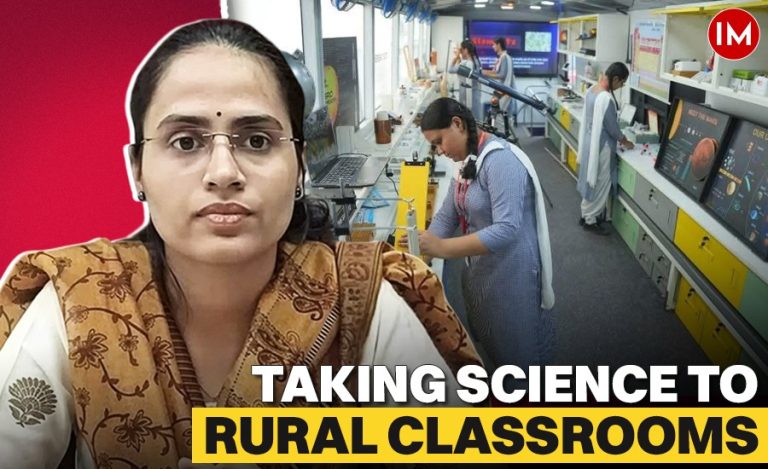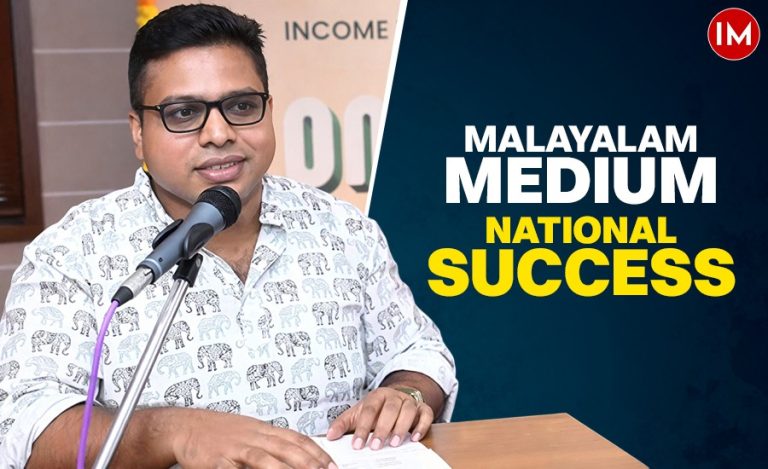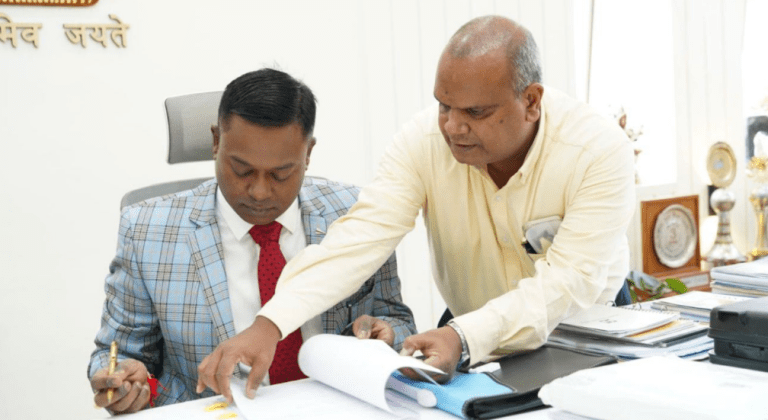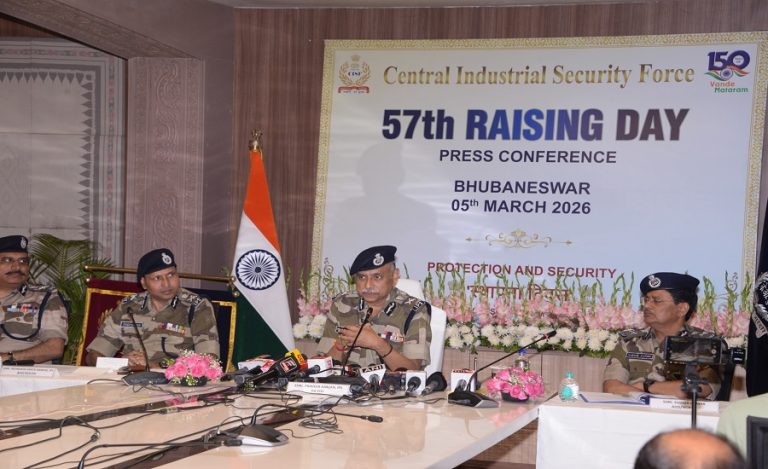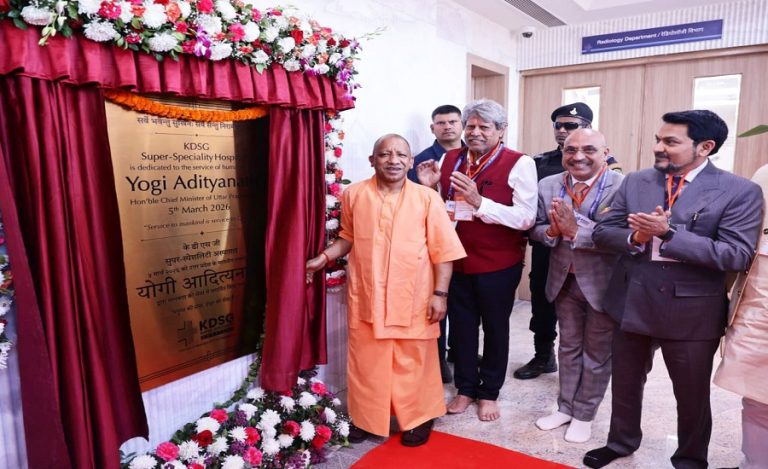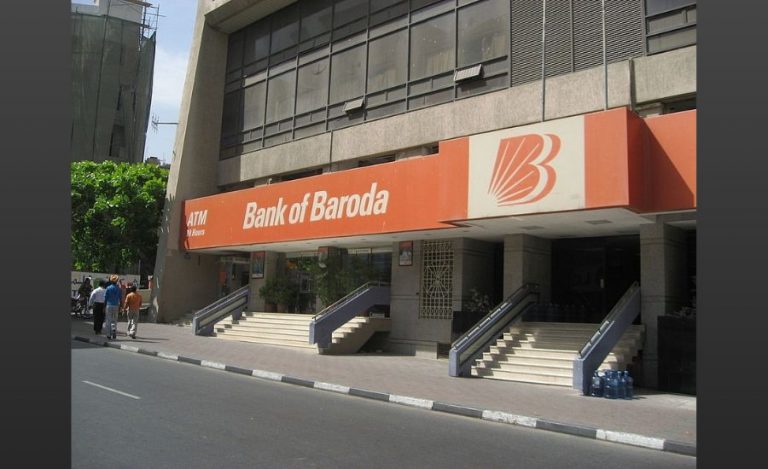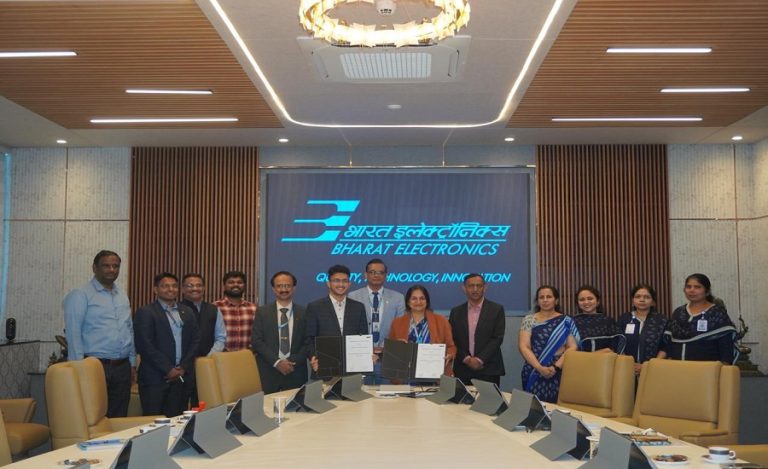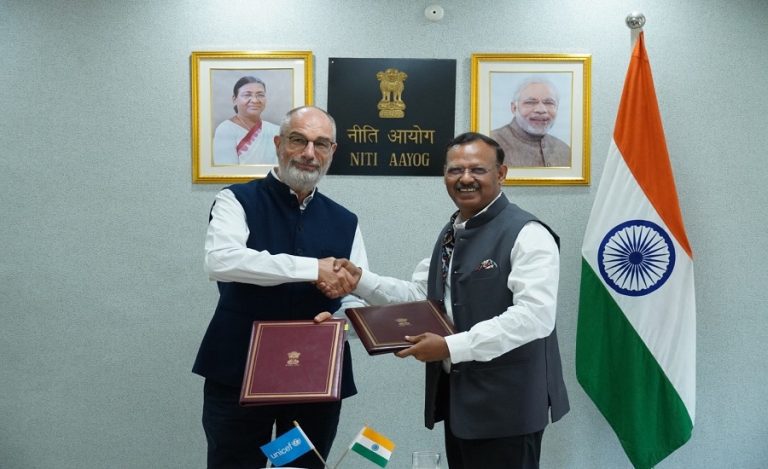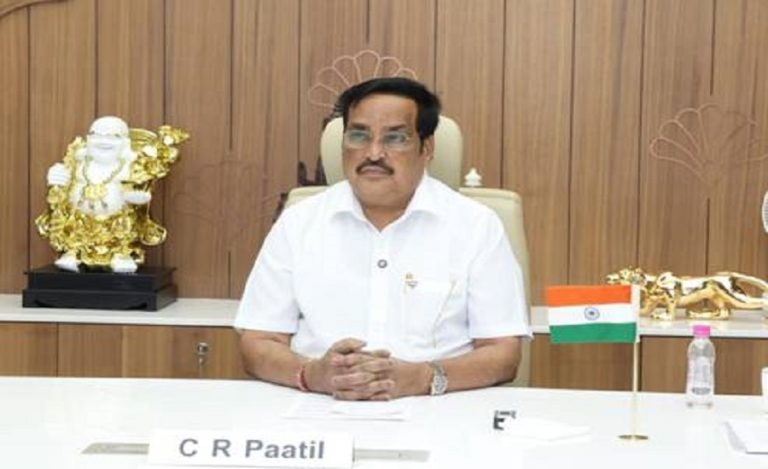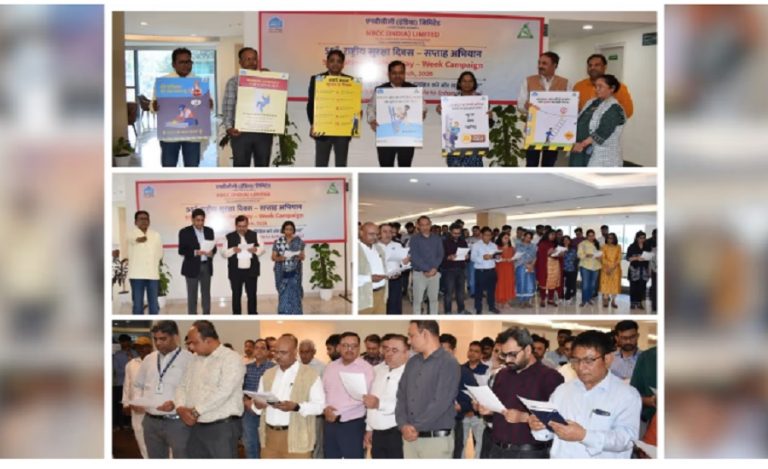When Lal Bahadur Shastri National Academy (LBSNAA) invited IRS officer Raghav Gupta to take part in a five-day oral communication module covering aspects of presentation and interactive public speaking for officer trainees, little did he think at that point of time that it would turn out to be a learning experience for him as well. He along with four other in-service former alumni of LBSNAA – Harssh A. Poddar (IPS), Devranjan Mishra (IRS), Rohit Rajbir Singh (IPS) and Karn Satyarthi (IAS) – were invited to impart training to the new batch. This took place under the ongoing 96th Foundation Course for newly recruited 480 officers of All India Services and other Central Services Group-A Including Bhutan Services.
The programme was held from 14 to 18 February and was inaugurated in the presence of Director Mr. Srinivas R. Katikithala and Ms. Radhika Rastogi, Joint Director. As public speaking and communication plays an important role in a bureaucrat’s life, we, at Indian Masterminds, spoke to IRS officer Raghav Gupta and discussed about his experience in training the budding bureaucrats.
ABOUT THE OFFICER
Mr. Gupta is a 2012-batch IRS officer, and the only Indian civil servant to get selected for a 10-day training on ‘Managing Financial Investigations’ organized by the OECD International Tax Crime Academy. He also has a vast experience of giving lectures and conducting webinars in organizations like the National Programme on Technology Enhanced Learning (NPTEL), Wildlife Institute India (WII), Centre for Environment Education (CEE), etc. During his days as an Officer Trainee at the National Academy of Direct Taxes (NADT), Nagpur, Mr. Gupta had the opportunity to address his batch meeting with the President of India at Rashtrapati Bhawan.
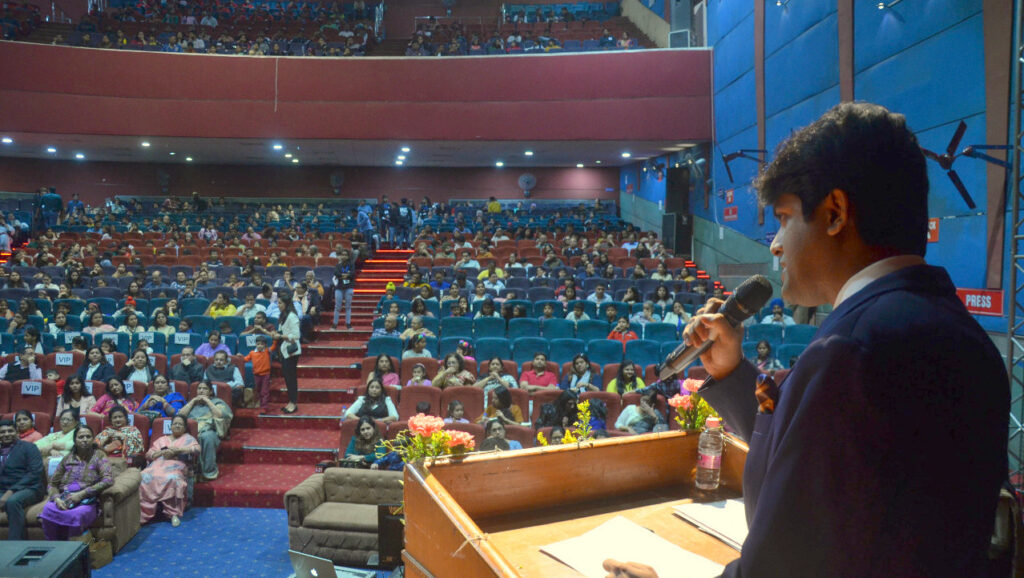
THE 2-DAY THEORY PROGRAMME
While speaking about the importance of public speaking and communication, Mr. Raghav Gupta said, “This is a very important part of the service because wherever an officer is posted, they are likely to have some kind of public dealing. And not only in public, but many a times, public speaking and sharing presentations and policies take place in the department itself.”

The LBSNAA programme started on 14 February where all the five officers structured the sessions in a way that two days were booked for theory and the rest for practical. The two theory days were attended by all the five officers, where they together addressed the whole batch. “As it was a big batch of 480 OTs of different service, it would have been difficult for a single person to manage the entire session,” Mr. Gupta said.
Topics like the aspects of public speaking, preparing and giving presentation were discussed during the theory session. Mr. Gupta said, “I personally took the session on stage fright as people mostly experience it while speaking on stage. I advised them on things to overcome and gave some tips and tricks that could help them.”
Significantly, during this module itself, Mr. Gupta was selected as the only instructor from India to train global investigators, prosecutors, and other government officials from across the world as part of the “Conducting Financial Investigations” programme organized by OECD Tax Crime Academy. Mr. Gupta was earlier selected as the only civil servant from India in the advanced version of this course.
PRACTICAL SESSIONS
After the theory part, came the three-day practical sessions, during which all the five officers made interesting simulation and designed some scenarios which the public servant would face in real life. As the session was attended by a large number of officer trainees, the scenarios ranged across different services.
A batch of 100 officer trainees was assigned to each officer, where a sub-group was formed, and every officer trainee got a chance to interact. The classes were taking simultaneously by all the five officers for three days.
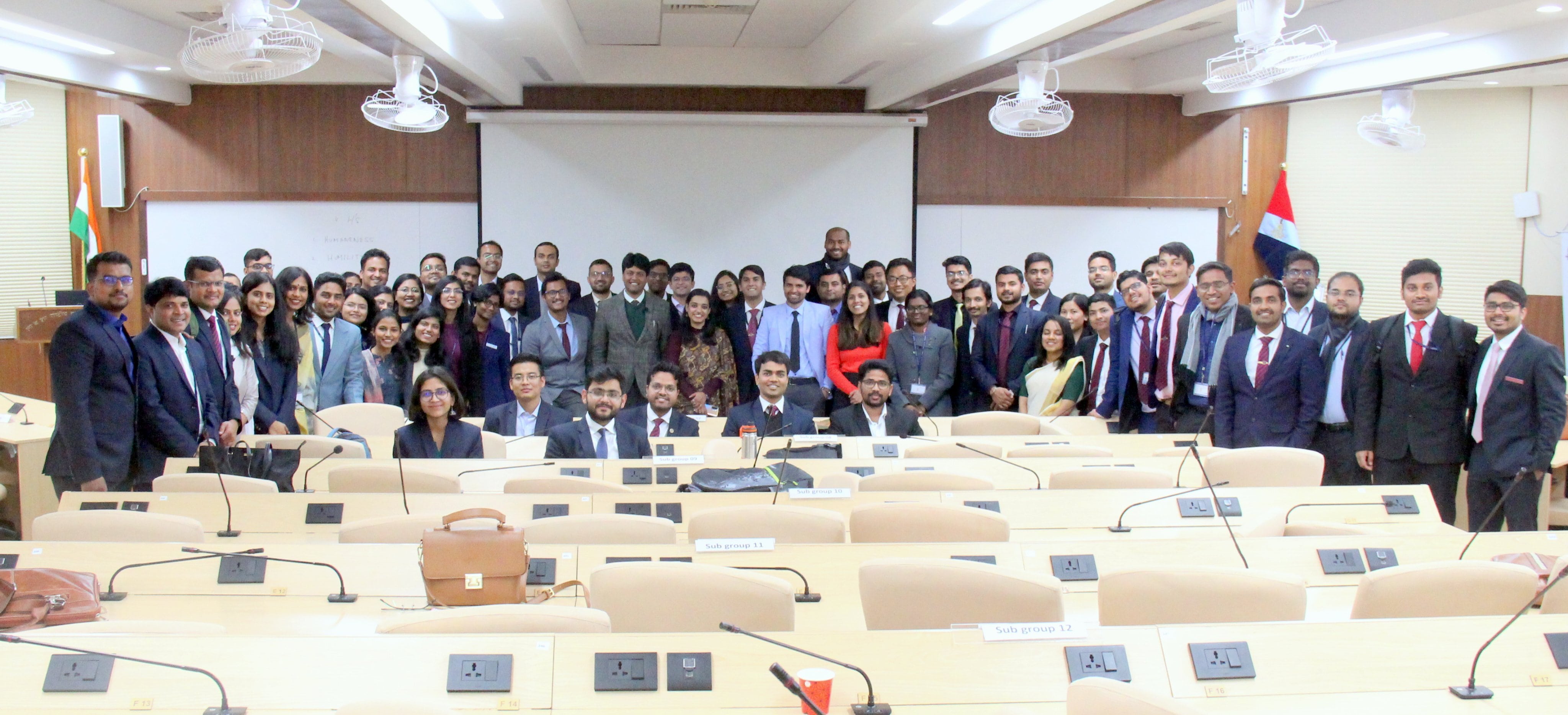
Mr. Gupta said, “The practical sessions were very helpful as each member got a chance to interact with the officers personally and discuss real-life situations which they would face in service. It was a very interactive programme, not only for the OTs but for me personally, as I was the biggest learner there. All the young OTs were filled with fresh ideas which I loved and would also use in resolving issues in service. It was more of an interaction rather than a training session.”


